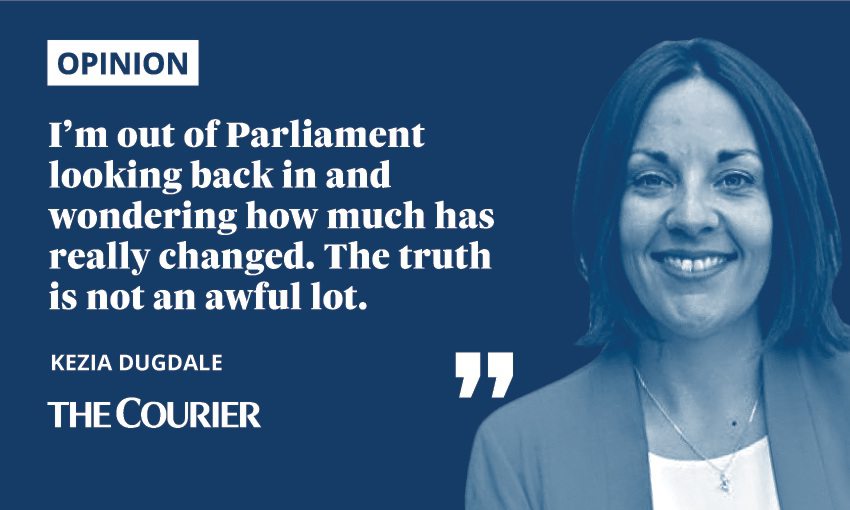Ten years ago, Campbell Christie, a giant of the trade union movement published a report which is arguably one of the most important documents in the history of devolution.
The Christie Commission was widely well received because it had a simple and very clear principled prescription for how to reform public services.
At its heart were four Ps: people, partnership, prevention and performance.
In short, the commission wanted people to have more say in the design and delivery of the services that they relied on – and that the organisations like councils and the NHS who delivered them should work more closely together.
It also said more effort should be made to avoid duplication and as much cash and time as possible should be spent on activities which prevented bad things happening.
Simples.

It was a compelling document because it made such good sense.
I was a fresh faced and newly elected MSP on the parliamentary committee that received the report and was filled with so much hope about the positive change that could emanate from it.
Ten years on, I’m out of Parliament looking back in and wondering how much has really changed.
The truth is not an awful lot, and as ever our collective response is to work out whose fault that is rather than what we can do about it.
Housing crisis a recurring problem
Some of the most frustrating experiences I had as an MSP related to housing.
I would regularly try to represent people who were stuck in really poor quality temporary accommodation, often for months.
Come rain or come shine they’d get kicked out of their bed and breakfast at 9am and would not be allowed back in till night time, with a bit of toast in their hand if they were lucky.
The landlords were receiving full rent for the room in a deal signed for years, so there was no incentive to improve the quality of the accommodation or move people in to something more permanent and appropriate.
If they were in that B&B they were off the rough sleepers list and that was all that mattered.
Separately, I’d advocate for people with multiple and complex needs to defend their care package every time the council instructed a “review” – a word which always meant their support was going down rather than up.
These were really vulnerable people who needed support to live independent lives. Half of them are dead now.
Stuck in hospital and getting sicker
I’ll never forgot one woman coming to my surgery who was waiting for an operation.
She desperately needed help getting handrails in her bathroom so she could return to her own home from hospital.
It would take months and as a consequence she was in hospital far longer than she needed to be and caught an infection while she was there at great cost to her quality of life and the public purse.
The people who don’t want to change their ways have no incentive to do so. No carrot or stick
Every one one of these stories is a failure because the system failed to stop the negative outcome from happening, despite it being utterly predictable and unfolding before our eyes in slow motion.
It’s not for the want of trying and there are many leading lights who have moved mountains to make their bit of the world function better, but ultimately the computer still says no.
That’s because the people who don’t want to change their ways have no incentive to do so. No carrot or stick.
Their budget lines and jobs are safe if they keep within their own silos, so they do.
And it’s why we find ourselves in the invidious position of having some of the most progressive housing legislation in the world but also 8,000 children living in temporary accommodation and homelessness rising for the third year in a row.
The difference between knowing what needs to be done and actually doing it is increasingly referred to in Scotland as the “Implementation Gap” and my god it is gaping.
The country is awash with reports, reviews and recommendations studiously outlining our challenges as a nation and rigorously detailing bullet points full of solutions.
Those reports are received by those with power, issued with a polite response and then shoved in the “to be actioned” pile where they largely fester.
Crisis, upon crash, then Covid
To be fair, when Christie was published 10 years ago, it landed just before an economic crash which would command the focus of our leaders for years.
The same crisis led to an austerity agenda which concentrated these problems even more intensely and made it much harder to spend money in the today in order to save more of it tomorrow.
Then, of course, came Covid.
Time to act
As we finally turn a corner in the pandemic, my plea is not to waste another moment consulting on how to build back better or to convene another working group to list our country’s problems.
We know what they are and we know how to fix them.
What we need is some political bravery to make some hard choices, to spend to save, to give the money to the people who will drive the change and only count the things that really matter.











